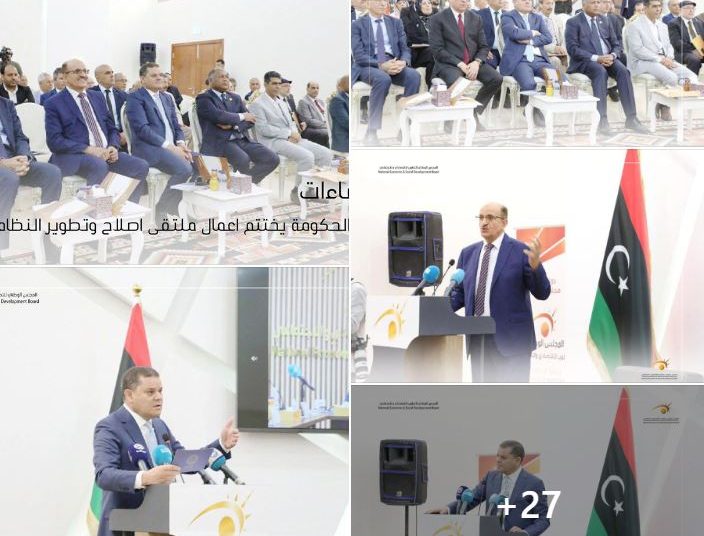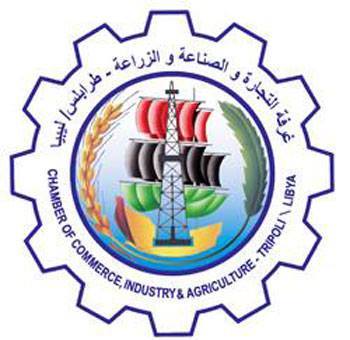The National Economic and Social Development Board (NESDB) held a forum on reforming and developing Libya’s health system on Monday at its Tripoli headquarters.
The high level event was attended by Tripoli based Libyan Prime Minister, Abd Alhamid Aldabaiba, the Director General of the NESDB, Mahmoud al-Futaisi, the head of the Audit Bureau, Khaled Shakshak, the Ministers of Finance and Economy, the Minister of State for Cabinet Affairs and the Prime Minister, the Undersecretaries of the Ministry of Foreign Affairs and International Cooperation and the Ministry of Health, with the participation of a number of heads of government agencies and sectors concerned with the subject of the event, in addition to independent national expertise.
During the event, a plan to manage the health sector crisis, a proposal to provide and enhance health services (universal health coverage), a health care financing model based on economic foundations, and a digital transformation project for the health sector were reviewed.
Libyan patients get poor healthcare relative to amounts spent
Commenting exclusively Libya Herald on the event, NESDB head Mahmoud Al-Futaisi said that the NESDB sought to develop several national strategies for each sector, including the national strategy for the health sector. This strategy, he explained, focuses mainly on reforming, restructuring, organizing, and developing the health sector, given the apparent deterioration in the provision of services due to its end-users.
This is especially the case in view of government spending on the sector, in the tens of billions of dinars, distributed to several bodies, centres, authorities and health facilities throughout the country. But, despite this, the Libyan citizen suffers in order to obtain appropriate and timely treatment, he emphasised.
Need to link and regulate the state and private health sectors
Al-Futaisi said there is a need to link the efforts made by the government in order to support its health sector and the private sector that provides good health services to the citizen while regulating the relationship between the public and private sectors, and preparing a clear vision within the health sector development strategy based on successive time goals leading to designing a clear plan and milestones of an integrated health system.
Final outputs to be widely shared
The NESDB head said that it was agreed to expand the circle of sharing the final outputs with all parties, institutions and independent national experts interested in reforming and developing the health system, including their observations and recommendations, and then referring them to the Prime Minister for approval and issuing the necessary decisions in this regard to put them into effect.
Later on last Monday, Prime Minister Aldabaiba went on to another event to inaugurated the “National System for Treatment and Rationalization of Expenditure”, the “Our Health” app, and the “Electronic Signature” system, which were introduced for the first time in the Libyan health sector. The initiatives are part of the government’s digitisation policy of the health system.
This came during the activities of the International Conference on Localization of Treatment opened in Tripoli on Monday, organized by the Support and Development of Therapeutic Services Department and sponsored by the state telecommunications holding company, LPTIC.









